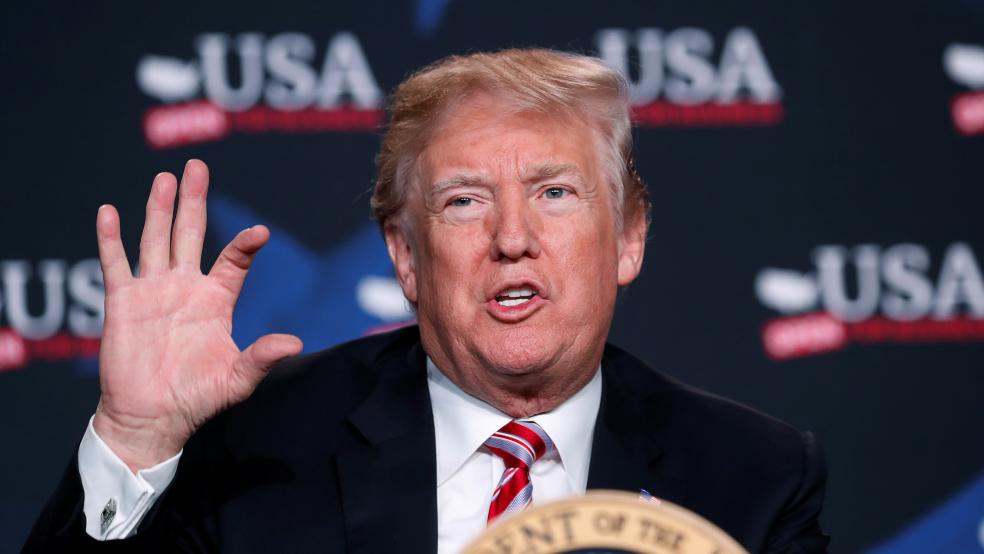Stocks have experienced some dramatic swings in recent days as investors try to digest and make sense of corporate earnings; rising interest rates and conflicting monetary and fiscal policy; geopolitical tensions; and concerns about economic growth in China and globally.
Trump administration policies have also left heads spinning, says economist and market strategist Ed Yardeni in a note to clients this week. “There has never been a President with policies so simultaneously bullish and bearish as Donald Trump! He is stepping on the economy’s accelerator and brakes at the same time,” Yardeni writes.
Here’s Yardeni’s take on the mixed signals Trump policies are sending the markets.
Bullish
Corporate tax cuts: “S&P 500 earnings got a big boost from Trump’s tax bill passed at the end of last year,” Yardeni notes. How big? Yardeni estimates, based on second quarter revenue and earnings growth rates, that the tax cuts may have added as much as 15 percentage points to earnings growth. And Wall Street analysts keep hiking their earnings expectations for 2018 and 2019. Meanwhile, the tax overhaul has boosted corporate cash flow, driving investor-friendly share buybacks and dividends — as well as corporate capital spending.
Deregulation: “It’s impossible to measure the impact of Trump’s deregulation of business on S&P 500 earnings,” Yardeni says. “Our guess is that deregulation, which started early last year, might amount to $4 per share in additional earnings.”
Bearish
Tariffs and China: Multinational companies have a lot at stake in the developing showdown between the U.S. and China. “Trump’s worldwide tariffs on aluminum and steel and on Chinese imports may be disrupting US multinational supply chains and earnings, especially in the short term. But longer term, Trump’s policies may force more companies to move their production out of China and into the US or countries that have signed bilateral trade deals with the US.” And an economic slowdown in China would have ripple effects across other markets, especially emerging markets.
Iran: Oil prices have surged since Trump withdrew from the Iran nuclear deal in May and said he would reimpose sanctions against Tehran and companies doing business there. “The higher cost of gasoline will offset some of the benefits of Trump’s tax cuts for consumers,” Yardeni says. “Higher energy costs will also squeeze profit margins, which were significantly boosted by Trump’s corporate tax cut.” And higher oil prices could also tamp down global economic growth.
Rising deficits: The federal government is ramping up its borrowing while the Fed is raising interest rates (much to Trump’s dismay) and reducing its balance sheet. Yardeni warns that deficits may be starting to weigh on the bond market and notes that many on Wall Street now expect rates on 10-year Treasuries to climb to 4 percent. “Trump is making a very big bet on supply-side economics,” Yardeni says. “The idea is that tax cuts will boost growth by boosting productivity, so inflation should remain subdued. That could work as long as growth isn’t weighed down by rising interest rates. If inflation does come back, then the latest supply-side experiment will end very badly indeed.” Yardeni expects inflation to stay in check — but the Fed is also watching other economic indicators as it forges ahead with its rate hikes.





